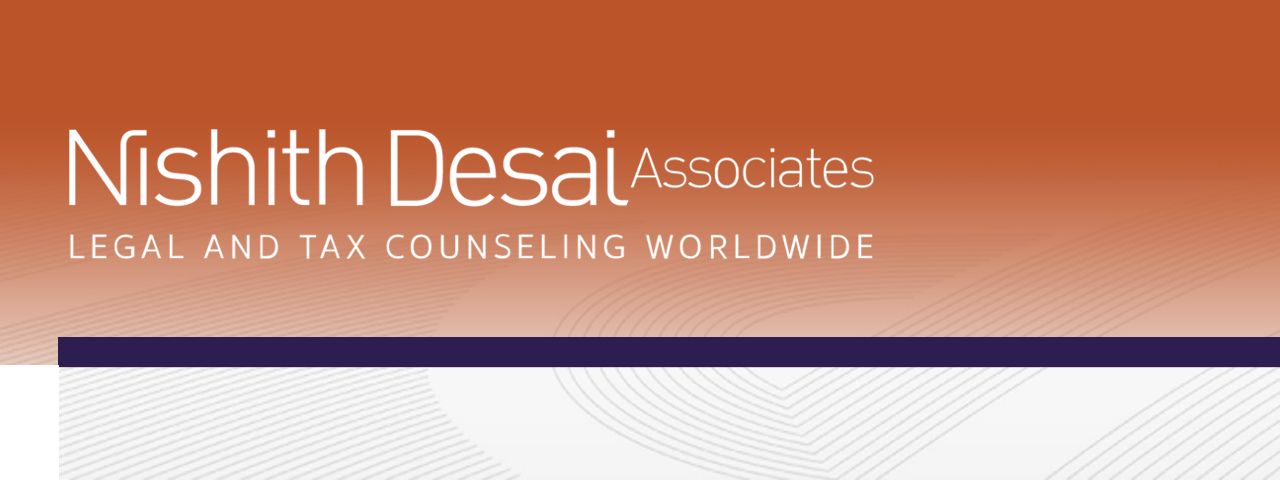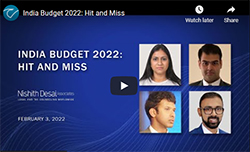|
|
|
The operations and governance of a stock exchange must always be above board and for all to see. It is unfortunate that the then board and management of the NSE permitted it to be dragged into such a needless crisis. Having done so, the management of the crisis is now the focus of attention; no stone should be left unturned to ensure that all guilty must be held accountable to the fullest extent of the law. The world is watching.
To learn more, please click on ‘About us’. |
Introduction to the National Stock Exchange:
National Stock Exchange of India Limited (“NSE”) is the leading stock exchange of India, located in Mumbai, Maharashtra. NSE was incorporated in 1992 and was established as the first dematerialized electronic exchange in the country. It was recognized as a stock exchange by the Securities and Exchange Board of India (“SEBI”) in April 1993 and commenced its operations in 1994. NSE was the first exchange in the country to provide a modern, fully automated screen-based electronic trading system that offered easy trading facilities to investors spread across the length and breadth of the country.
NSE is under the ownership of some leading financial institutions, banks and insurance companies. It has a total market capitalization of more than US$ 3.4 trillion, making it the world's 10th-largest stock exchange as of August 2021. NSE's flagship index, the NIFTY 50, a 50 stock index is used extensively by investors in India and around the world as a barometer of the Indian capital market.
SEBI Order:
On February 11, 2022, SEBI released a 190-page order against Ms. Chitra Ramkrishna (Former Managing Director and Chief Executive Officer of NSE) and certain others, revealing some startling facts (“SEBI Order”). On the face of it, the SEBI Order seems to have set the cat among the pigeons.
Relevant factual background:
While the full SEBI Order can be read here, some relevant facts as emanating from the SEBI Order are as under:
-
SEBI received complaints dated (i) December 15, 2015; (ii) May 25, 2016; and (iii) November 11, 2016 against the NSE alleging inter alia governance issues in the appointment of one Mr. Anand Subramanian.
-
Ms. Chitra Ramkrishna caused the appointment of Mr. Anand Subramanian as the Chief Strategic Advisor, for an annual compensation of ₹1.68 crore in 2013. The job involved working for four days a week, as a consultant. He was only interviewed by Ms. Chitra Ramkrishna, and there were no notings in the personnel file in relation to his interview. The position of Chief Strategic Advisor was neither advertised nor was any other person considered for the said position.
-
Mr. Anand Subramanian did not have any prior exposure to capital markets; he had middle level management experience1 where his annual salary was less than ₹15 lakhs. His prior experience was not relevant for the position of Chief Strategic Advisor.
-
His compensation was increased to ₹2.016 crores per annum w.e.f. April 01, 2014 and then in March 2015, he was given a 15% increase and asked to work 5 days a week and given a prorated increase, bringing his compensation to ₹ 3.3327 crores per annum; he was also re-designated as Group Operating Officer (“GOO”) and Advisor to MD. His performance evaluation was done by Ms. Chitra Ramkrishna as he reported to her. There was no evidence on file of this evaluation and she had recommended the increase. The re-designation to GOO and Advisor to MD was not tabled to the Nomination and Remuneration Committee (“NRC”) for approval, despite the fact that it was required under Companies Act, 2013, as he was a Key Management Personnel.
-
Mr. Anand Subramanian took several visits overseas where his visa applications mentioned that he was an employee of the NSE. He flew first class, which was inconsistent with NSE rules. He also made multiple trips to Chennai, virtually every weekend, in spite of the documents showing that he was based in Mumbai.
-
Eventually a secretarial audit of NSE was conducted in 2015-16 where issues were raised regarding the re-designation of Mr. Subramanian as ‘GOO and Advisor to MD’ without the approval of NRC.
-
In view of the complaints regarding governance issues in appointment of Mr. Subramaniam at NSE, SEBI conducted an examination in the matter for the period 2013-2017, i.e. starting with when Mr. Subramanian joined NSE and ending when NSE submitted a report dated November 22, 2017, of NRC to SEBI.
-
During the course of investigation, SEBI examined certain documentary evidences, which showed that Ms. Chitra Ramkrishna had shared internal confidential information of NSE on email (email ID being rigyajursama@outlook.com) with an unknown person, who she mentioned as a ‘spiritual force’, 'siddha-purusha' or 'paramhansa', who did not have a physical persona and could materialize at will; who had been guiding her spiritually for over 20 years.
-
A forensic audit was conducted by EY and a report was submitted to the NSE. Desktops of Ms. Chitra Ramkrishna and Mr. Anand Subramanian were imaged and checked; however, laptops were not available. A law firm was also engaged by the NSE.
It would not be out of place to acknowledge that the SEBI Order may be challenged and the findings therein may well be construed in a different manner by the higher courts.
Unanswered questions/issues:
Certain irresistible facts emanate from the SEBI Order, which when looked at in the proverbial rear-view mirror, reflect on the state of governance and internal controls prevalent at that point of time at India’s premier stock exchange. These have thrown up additional questions which need to be looked at, to better understand the length and breadth of what has transpired at the NSE.
-
While delegation of powers in any organization exists, there are always checks and balances in place to ensure that any utilization of such powers are done within the contours of such delegation and applicable law. How was NSE’s MD & CEO, Ms. Chitra Ramkrishna (a) unilaterally able to appoint her good friend’s husband, Mr. Anand Subramanian as a consultant?; (b) able to bypass internal controls, conflicts and due process in such appointment and with absolutely no regard for relevant experience?; (c) able to frequently revise compensation of Mr. Subramanian in an arbitrary and disproportionate manner?; (d) permitted to act without professional competence, fairness, impartiality, efficiency and effectiveness; and (e) able to breach the code of conduct2 and code of ethics3; in full view of the Board of Directors, various committees and the statutory auditors of the NSE, and that too for such an extended period of time?
-
On the same date4 on which Mr. Anand Subramanian was appointed as Chief Strategic Advisor to the MD & CEO, his wife, Ms. Sunitha Anand (who is admittedly a good friend of the MD & CEO), was appointed as a consultant for the regional office in Chennai. The SEBI Order is silent on this aspect including any analysis on the conflict that exists, which is apparent on the face of it.
-
SEBI’s investigative powers are broad. To that end, when faced with a submission that the unknown person whose email is rigyajursama@outlook.com is a ‘spiritual force’, 'siddha-purusha' or 'paramhansa', who did not have a physical personality and could materialize at will, could and should SEBI have done more to unearth the individual’s identity?
-
SEBI acknowledges the forensic audit done by EY and the limitations of such audit as stated by EY. SEBI disagrees with EY’s view that the unknown person was, infact, Mr. Anand Subramanian himself. This brings us to a larger question that begs to be answered. Where SEBI is of the view that the forensic report is incomplete/inadequate or has come to a finding that SEBI is unable to agree with, should SEBI have utilized its powers to either ask the NSE through EY to conduct a more thorough investigation? Or should SEBI have stepped in and had an independent forensic audit conducted? The approach of SEBI in this regard may be read as passive.
-
The MD & CEO of India’s premier stock exchange is expected to maintain the highest standards of personal integrity, truthfulness, honesty and fortitude in discharging her duties. Sharing of inter alia confidential information by Ms. Chitra with an unknown person is a blatant breach of applicable laws. One would imagine that in an organization like the NSE, adequate controls such as firewalls and other IT security systems exist whereby emails to unidentified email IDs and web-based emails are flagged for security review. If so, these security protocols were bypassed. A more in-depth analysis is required to be undertaken to understand the other guilty players in this saga. Also, the financial impact of sharing this information, if any, appears not to have been evaluated/assessed as yet.
-
The extent of control exercised by the said unknown person over the affairs of the NSE, by controlling its MD and CEO, shocks the conscience. The fact that such control continued over a period of time also reeks of inadequate checks and balances. The irrefutable conclusion that emanates is that the governance of the NSE stood compromised. The failure of the Board, its committees, the statutory auditors and the internal controls needs to be examined.
-
While the complaints were received in 2015 and 2016, the proceedings culminating in the SEBI Order were issued in February 2022. In this time, the NSE has morphed into a more sophisticated organization and the Board of the NSE is comprised of an entirely new set of individuals. While any legal proceeding does take some time, the amount of time taken here has permitted the errant individuals to slither away and the organization to reinvent itself. Should this proceeding have been fast-tracked? Why was it not done? We have seen situations in the past where the Board of Directors of certain companies were superseded by the regulators. Once the extent of rot was understood by SEBI, why were additional controls not put in place pending disposal of the proceedings before it?
Analysis:
The penalties imposed by the SEBI Order on each of the involved appears to be a mere rap on the knuckles when one takes into account the fact that their conduct has the ability to erode the confidence of the world in the NSE.
Ms. Chitra Ramkrishna was the role model for women in the securities market and in corporate India. She was the first woman to head an Indian stock exchange and was also awarded the Forbes Women Leader of the year in 2013. Fortune India termed her as “the most powerful woman in India’s security market”. While issues of diversity in corporate India are slowly but surely being addressed, Ms. Chitra Ramkrishna’s conduct, as detailed in the SEBI Order, will hurt the image of women in corporate India. Her attempted justification of her behavior reflect poorly on her ability to discharge her duties as MD & CEO of India’s premier stock exchange and the trust placed by the shareholders and the Board in her to do so in the first place.
The board of directors may face heat
The Companies Act, 2013 prescribes the duties of directors of a company. Such duties include acting in the best interest of the company and exercising their functions with due and reasonable care, skill and diligence, and exercising independent judgment.5 The Supreme Court in the case of Official Liquidator v. P. A. Tendolkar,6 has held that whether a director has acted reasonably, honestly and with due diligence is a question of fact. The director cannot shut his eyes to what must be obvious to everyone who examines the affairs of the company even superficially. If any director is found to have done so, he could be held liable for dereliction of duties and compelled to make good the losses incurred by the company even if he is not shown to be guilty of participating in the commission of fraud. It is enough if the director’s negligence is of such a character as to enable frauds to be committed.
It has been found in the present case that the board of directors were aware of the irregularities in the appointment of Mr. Anand Subramanian. Despite discussing the same in the board meeting, it was not recorded in the board minutes on account of confidentiality and sensitive information. The board was also aware that Ms. Ramakrishna had shared confidential company information with an unknown third party. Yet the board permitted Ms. Chitra Ramakrishna to resign and also appreciated her for the services she rendered. All this appeared to be an attempt to sweep matters under the carpet. It shows that the board had turned a blind eye to her conduct. This is despite the fact that there were public interest directors and independent directors on the board. It also raises the question, whether the institution of independent directors is really independent? (you may read our analysis on this here).
Crisis Management
It is important that whenever the board of directors or any director of the company is in receipt of allegations of irregularities, fraud etc., the board or the concerned director should take the following steps:
-
Appoint an independent third party / legal expert to investigate;
-
Appropriately have the issue considered at the board, while at the same time excluding persons who may be involved;
-
Forwarding the complaint to the appropriate committees (such as grievance redressal committee, sexual harassment committee), keeping in mind that the committee members should not have been subject of the allegations in the complaint;
-
Immediately, consult an attorney for future course of action; and / or
-
Inform police if the offence committed is criminal in nature;
As on date, several agencies like the Central Bureau of Investigation (“CBI”), the income-tax authority and even the police have initiated their own investigations into issues at the NSE and will probably initiate proceedings as required under law. In fact, the Government of India is reportedly7 examining the order to see whether SEBI dealt with the issues in question adequately. While each of these investigations is ongoing and will reach their own logical conclusion, the fact remains that several skeletons that existed in NSE’s closets are slowly but surely being unearthed and putting the conduct of NSE at the fore. No doubt, as part of the slew of investigations underway, the above questions/issues will also find answers. SEBI ought to have looked deeper and ensured that it took adequate confidence building measures as part of its analysis.
Conclusion:
The NSE, as the premier Indian stock exchange, should ensure that it is above and beyond such conduct. NSE Prime is an initiative where NSE has prescribed higher standards of governance for companies listed in NSE Prime with a view to raise the bar on corporate governance. While the obvious issues of inter alia failure of corporate governance, lack of adequate internal controls and breach of security protocols at that point in time are being looked into, one hopes that the board of directors of NSE, as they stand today, will already have taken steps to strengthen the areas of weakness and would have removed any element of opaqueness in NSE’s decision making. Another aspect for consideration must be to work towards ensuring that the shares of the NSE are listed forthwith; this will ensure that additional obligations including reporting and disclosure requirements are required to be met. Such additional checks and balances will provide an additional layer of comfort to NSE’s shareholders and the public at large.
You can direct your queries or comments to the authors
1 VP, Leasing & repair Services, Transafer Services Limited, a subsidiary of Balmer & Lawrie
2 Clause v. (b) and (e) of the Code of Conduct as specified under Part– A of Schedule– II read with Regulation 26(1) of the SECC Regulations, 2012.
3 Clause (i) of the Code of Ethics under Part– B of Schedule– II read with Regulation 26(2) of the SECC Regulations, 2012; Clause iii. (c), (e) and (f) of the Code of Ethics as specified under Part– B of Schedule– II read with Regulation 26(2) of the SECC Regulations, 2012, read with Regulation 26(1) and 26(2) of the SECC Regulations, 2012;
4 April 01, 2013;
5 See Section 166 of the Companies Act, 2013
6 (1973) 1 SCC 602
Disclaimer
The contents of this hotline should not be construed as legal opinion. View detailed disclaimer.
|





